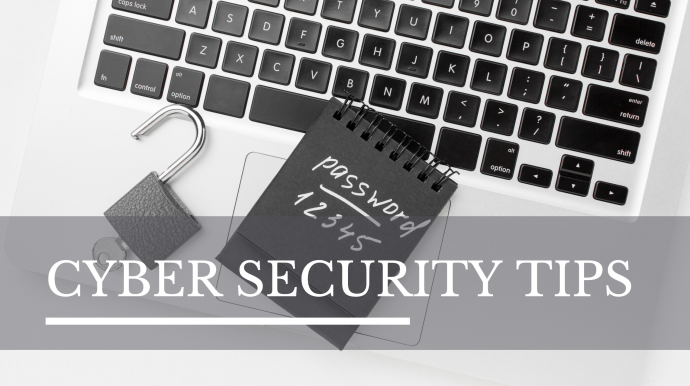Cyber Security Tips: Keep Your Data Safe
Web security is not only installing a firewall and systematic virus scanning. Developing strong habits and performing simple protective actions on daily basis is the most important thing. It is crucial to keep in mind simple cyber security rules, since hacker attacks and viruses on the Internet always threaten our privacy, and new types of fraud appear every day.
I’ve compiled a brief 5-step data protection guide that will keep you protected from the majority of cyber threats.
1.Use a spam filter for your e-mail.
Most of all the incoming emails turn out to be spam and may contain malicious attachments. Such a newsletter is an incredibly simple and at the same time effective way to infect your computer and steal your data. Unfortunately, we cannot fully control who can send us letters. As soon as your email address is in the scam database, you start to receive fake promotions, exclusive offers and other garbage. Especially dangerous are phishing emails that resemble official mail from banks, well-known corporations and web resources where you were registered. Their goal is to mislead you and send you to a fake website, where you will be asked to provide some personal information.
You can deal with such malicious emails only with the help of spam filters available in all the popular email services for free. Spam is often blocked without your participation, but if not, simply mark one of the suspicious emails as spam, so that from now on the service will filter mail from the selected recipient.
Important Tips:
Never open suspicious attachments and never follow links in any letters from unknown senders.
While doing any purchase online, always check the browser: the address line should begin with https://, which is safe protocol. If you don’t see https://, never use credit card details on this website.
2.Switch to encrypted email service
To protect your email inbox and the contents of your letters, it’s not enough to use the popular email service. Even if you have a strong password, two-factor authentication and HTTPS connection, there is still a risk of personal data leakage.
Your mail can be secured by a special mail service with encryption of all letters. For example: ProtonMail, Tutanota, and Mailfence offer both free tariffs with a limited place in the cloud, and paid without significant restrictions.
3.Use strong and various passwords for different websites.
The best passwords will thwart brute force and dictionary attacks, but it's also possible to make them easy to remember.
Some hacks to build a strong password:
Make it long — This is the most critical factor. Choose nothing shorter than 15 characters, more if possible.
Use a mix of characters — The more you mix up letters (upper-case and lower-case), numbers, and symbols, the more potent your password is, and the harder it is for a brute force attack to crack it.
Avoid common substitutions — Stay away from the obvious. Never use sequential numbers or letters, and for the love of all things cyber, do not use password. Come up with unique passwords that do not include any personal info such as your name or date of birth.
Don’t use memorable keyboard paths — Much like the advice above not to use sequential letters and numbers, do not use sequential keyboard paths either (like qwerty). These are among the first to be guessed.
4.Turn on two-factor authentication
This is your second level of protection. The first factor is the password, the second is the device. Even if an attacker manages to hack your password remotely, he still won’t be able to use it without access to the device. This simple step greatly complicates the task of hacking.
The most popular two-factor authentication method is a special application on the phone that generates one-time passwords. Such an application can be a free Google Authenticator or the same 1Password.
5.Use a proxy server or VPN
Proxy server also allows you to protect your personal data. VPN creates a kind of layer between your device and the Internet and makes the connection secure. My favorite one is TunnelBear, but you can choose any VPN you like.
That’s it. Simple, quick and free. If you have any stories or life hacks on this topic – you are more than welcome to share them with me!
Wishing you a wonderful day!

